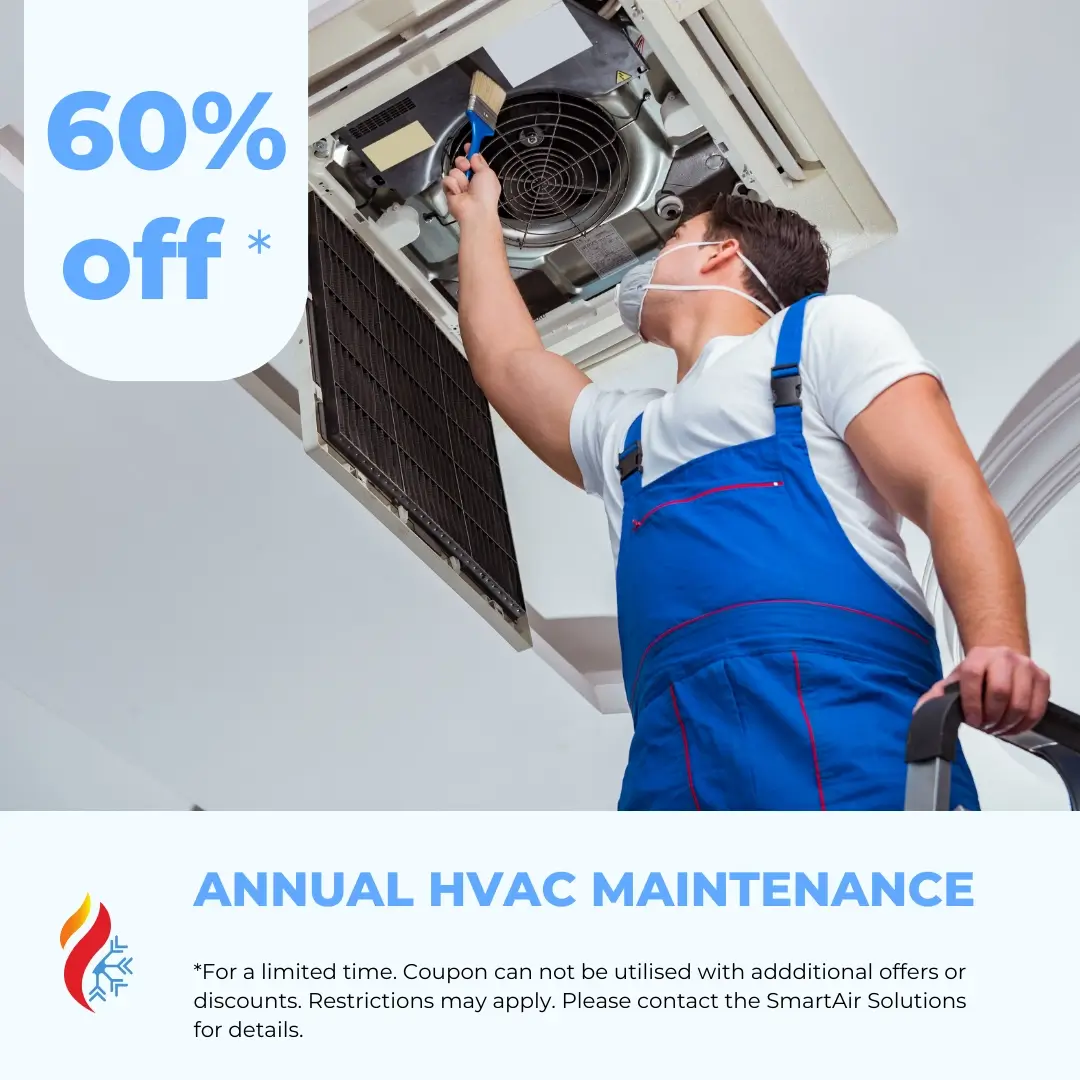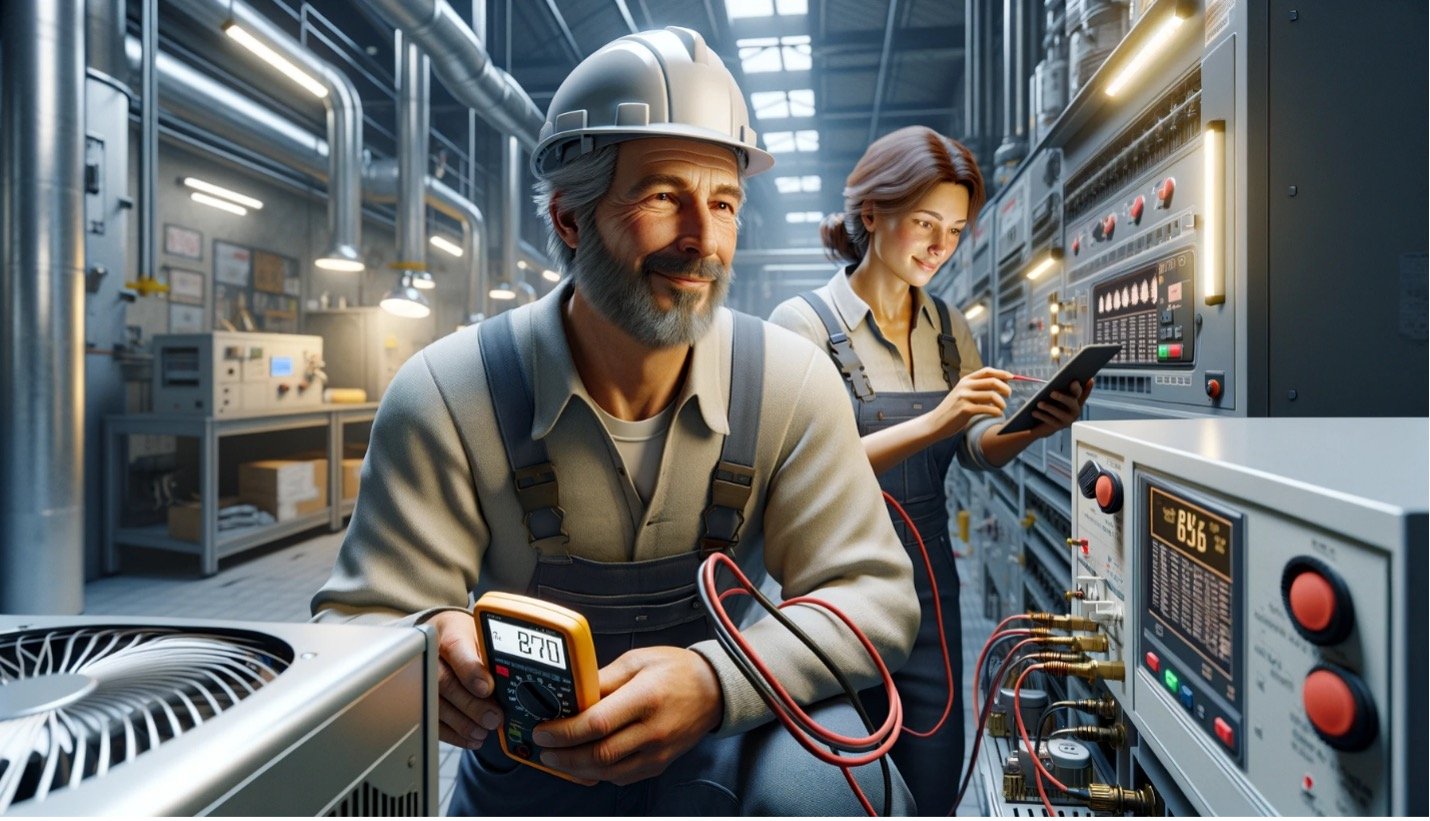Commercial HVAC Contractor Providing Expert Heating and Cooling Solutions
Wiki Article
A Comprehensive Check Out Heating And Cooling Providers and Their Influence on Power Effectiveness and Expense Cost Savings
With technical innovations like wise thermostats and high-efficiency components, the potential for maximizing system efficiency is huge. As we discover the intricate connection in between A/c systems and operational expenses, consisting of the change towards environmentally pleasant choices, the concern develops: how can these methods be properly applied to optimize both financial and eco-friendly advantages?
Importance of A/c Systems
a/c systems are a vital component of modern-day structures, playing a vital function in preserving healthy and comfy interior settings. These systems, incorporating air, ventilation, and home heating conditioning, are important for managing temperature, humidity, and air high quality, thereby making certain the wellness of occupants. Effective heating and cooling systems add substantially to producing an ideal interior environment, which is vital for both domestic and industrial rooms.In industrial buildings, heating and cooling systems are essential to offering a efficient and risk-free environment. By regulating interior climate conditions, these systems assist stop the growth of mold and the spread of air-borne pollutants, therefore safeguarding the health and wellness of customers and employees. In addition, in property settings, heating and cooling systems enhance living problems by offering constant thermal convenience and improving interior air top quality, which is vital for total wellness.
Moreover, the style and upkeep of a/c systems have a straight influence on power intake and operational costs. Appropriately created and maintained systems can substantially minimize energy usage, resulting in lowered utility expenses and a smaller carbon impact. The efficiency of these systems therefore plays a crucial duty in promoting sustainability and power conservation within structures, highlighting their significance in the modern-day building landscape.
Breakthroughs in HVAC Technology
Advancement in a/c modern technology is transforming the method structures handle interior climates, introducing a brand-new period of effectiveness and control. Current advancements have actually concentrated on maximizing power usage while enhancing individual convenience. One remarkable development is the combination of wise thermostats, which utilize expert system to discover occupancy patterns and change temperatures accordingly, reducing unnecessary energy usage.Variable Cooling Agent Flow (VRF) systems represent one more significant jump onward. These systems permit exact temperature level control in different zones of a building, boosting comfort and decreasing power waste. VRF technology is particularly beneficial for large business spaces, using flexibility and scalability.
In addition, the arrival of Web of Points (IoT) gadgets has actually changed heating and cooling systems into interconnected networks qualified of real-time information collection and evaluation. This connectivity makes it possible for predictive upkeep, making sure systems operate at peak efficiency and minimizing unanticipated downtime.
Moreover, developments in products and style, such as the use of high-efficiency coils and compressors, have actually improved total system efficiency - Heating Contractor. The fostering of ecologically pleasant refrigerants additionally highlights the sector's dedication to sustainability
These technical advancements are pivotal in minimizing operational expenses and ecological impact, establishing brand-new standards for constructing environment administration.
HVAC Upkeep and Performance
Making sure ideal performance of HVAC systems prolongs past technical innovations; it also pivots on reliable upkeep practices. Routine upkeep is important for maintaining effectiveness, minimizing energy intake, and extending the life span of a/c systems. The main goal is to ensure that all elements operate at their peak potential, thereby decreasing energy wastage and preserving regular indoor comfort levels.Routine maintenance tasks, such as cleaning or replacing air filters, examining refrigerant levels, and examining ductwork for leakages, are necessary for preventing unneeded stress on the system. Clogged or filthy filters can obstruct airflow, causing the system to work more challenging and take in more energy. Also, poor cooling agent degrees can minimize cooling down performance, bring about greater functional prices.
In addition, regular assessments by certified professionals can determine possible problems before they escalate right into pricey repair work or system failures. These examinations often include checking electric links, calibrating thermostats, and guaranteeing the overall honesty of the a/c system. By resolving minor problems early, organizations and house owners can avoid unexpected breakdowns and enhance energy efficiency.
Cost-efficient A/c Solutions
For those looking to obtain the most out of their heating, air, and ventilation conditioning systems without breaking the bank, checking out affordable heating and cooling services can make a substantial difference. One prompt action is to invest in programmable thermostats, which enable customers to establish certain temperatures for various times of the day, optimizing energy use and reducing unnecessary intake. By automating temperature changes, homeowners can accomplish substantial savings on power costs.Routine upkeep is one more crucial part of cost-efficient cooling and heating monitoring. Guaranteeing that filters are cleaned up or replaced on a regular basis, ductwork is secured, and devices are serviced by professionals can prevent pricey repairs and improve system longevity. Preventive upkeep not only preserves system effectiveness however also assists in staying clear of unanticipated malfunctions that can cause expensive emergency repair services.
Additionally, retrofitting existing systems with energy-efficient elements, such hour ac repair near me as variable rate motors or high-efficiency compressors, can be a prudent financial investment. These upgrades enhance operational performance, lower energy usage, and can often be executed at a fraction of the price of a full system substitute.
Environmental Impact Decrease
Lowering the environmental influence of Cooling and heating systems is important in today's pursuit of sustainable living. A/c systems are significant factors to power intake, accounting for almost 40% of power usage in commercial buildings.
Technological developments in a/c style and operation, including the integration of smart thermostats and energy-efficient heatpump, are pivotal in decreasing carbon impacts. These technologies enable for maximized power usage, lessening wastefulness and boosting general system efficiency. Additionally, embracing routine upkeep practices makes sure heating and cooling systems operate at peak efficiency, further curtailing unnecessary power intake.
Furthermore, making use of environmentally pleasant refrigerants is essential, as typical cooling agents, like CFCs and HCFCs, have actually been eliminated due to their ozone-depleting residential or commercial properties. Modern alternatives, such as hydrofluoroolefins (HFOs), deal decreased environmental threats, straightening with worldwide environmental protocols. By embracing these sustainable techniques, heating and cooling solutions can play a transformative role in reducing ecological influences, promoting energy performance, and fostering an extra sustainable future.
Conclusion

Furthermore, the great post to read layout and upkeep of Heating and cooling systems have a direct impact on energy consumption and operational prices. Regular upkeep is vital for maintaining effectiveness, lowering energy consumption, and extending the life period of Heating and cooling systems. HVAC other systems are substantial contributors to energy usage, accounting for virtually 40% of power usage in industrial structures. Additionally, adopting routine upkeep practices makes sure A/c systems run at peak effectiveness, further curtailing unneeded energy usage.
The transition to environmentally friendly HVAC systems better promotes and decreases operational expenses sustainability. (Heating Contractor)
Report this wiki page